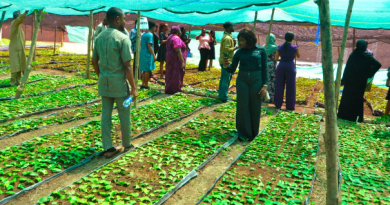Apply now: THRIVE Global Impact Challenge for innovative agriculture startups ($1m funding)
The importance of addressing the climate crisis is more evident than ever, and innovative solutions are crucial in shaping a sustainable, prosperous, inclusive, healthy, and fair future.
The THRIVE Global Impact Challenge for innovative agriculture startups seeks out groundbreaking startups worldwide that are driving progress towards a more sustainable agricultural future.
In line with the UN’s Sustainable Development Goals, this global challenge focuses on five key themes, each playing a vital role in facilitating the shift towards a carbon-neutral agricultural sector.
The champion company, selected from the finalists of each theme, will progress to the final stage and present their pitch at the prestigious THRIVE Global Impact Summit, where the ultimate winner will be revealed.

The victorious company will be honored with the THRIVE Global Impact Challenge Award, along with the following benefits:
– Participation in THRIVE’s renowned Global Accelerator Program
– Funding from SVG Ventures of up to $1 million USD
– Opportunity to deliver a live pitch at the THRIVE Global Impact Summit in Silicon Valley
– Two complimentary tickets to attend the THRIVE Global Impact Summit and the pre-summit networking reception.
Selection Criteria – THRIVE Global Impact Challenge for innovative agriculture startups
Seed to Series A:
Applicants should be early-stage startups or entrepreneurs at the seed to Series A stage. We welcome innovative ideas and solutions that have the potential for growth and scalability.
Global Applicants:
We invite applications from around the world. Entrepreneurs and startups from any country or region are encouraged to apply, as we value diverse perspectives and global collaboration.
Adhesion to Focus Areas:
Applicants should demonstrate a clear alignment with one or more of the above focus areas. Solutions should address the specific challenges within these areas and offer innovative approaches for positive impact.
Proven Climate & Environmental Impact (Preferred):
While not mandatory, we highly value applicants who can demonstrate a proven impact on climate and the environment. This includes showcasing tangible outcomes, data-driven results, or successful implementation of solutions that have positively influenced sustainability, carbon reduction, biodiversity, or other environmental aspects.
FOCUS AREAS – THRIVE Global Impact Challenge for innovative agriculture startups
Soil health & Biodiversity
Billions of tons of soil erode annually, contributing to biodiversity loss. Prioritizing soil health is crucial for long-term food security, biodiversity conservation, and climate change mitigation. This involves promoting regenerative agriculture, eco-friendly pest control, innovative crop nutrition, diverse ecosystems, and sustainable finance initiatives.
Food Security & Waste Reduction
Addressing food security challenges involves efficiently feeding a growing global population while reducing food waste. We aim to optimize resource utilization, support climate-resilient agriculture, digitalize farm operations, enhance supply chain efficiency, and minimize waste.
Reducing and offsetting GHG emissions
The increase in carbon emissions is accelerating climate change, endangering global sustainability. Our objective is to transition to a low-carbon economy by focusing on renewable energy, energy efficiency, carbon capture technologies, and sustainable transportation.
Nutrition & Health
Enhancing nutrition and health is essential for a sustainable food system. This includes precision nutrition, cultivated food ingredients, rapid quality and safety testing, and sustainable alternative proteins for food and feed applications.
Cleantech: Water and Energy.
Given the increasing global water scarcity, it is essential to utilize CleanTech in the fields of energy and water. Our latest global impact initiative involves technologies that support intelligent irrigation, improved water measurement, environmentally friendly resources, bioenergy, energy efficiency, and land use optimization.






